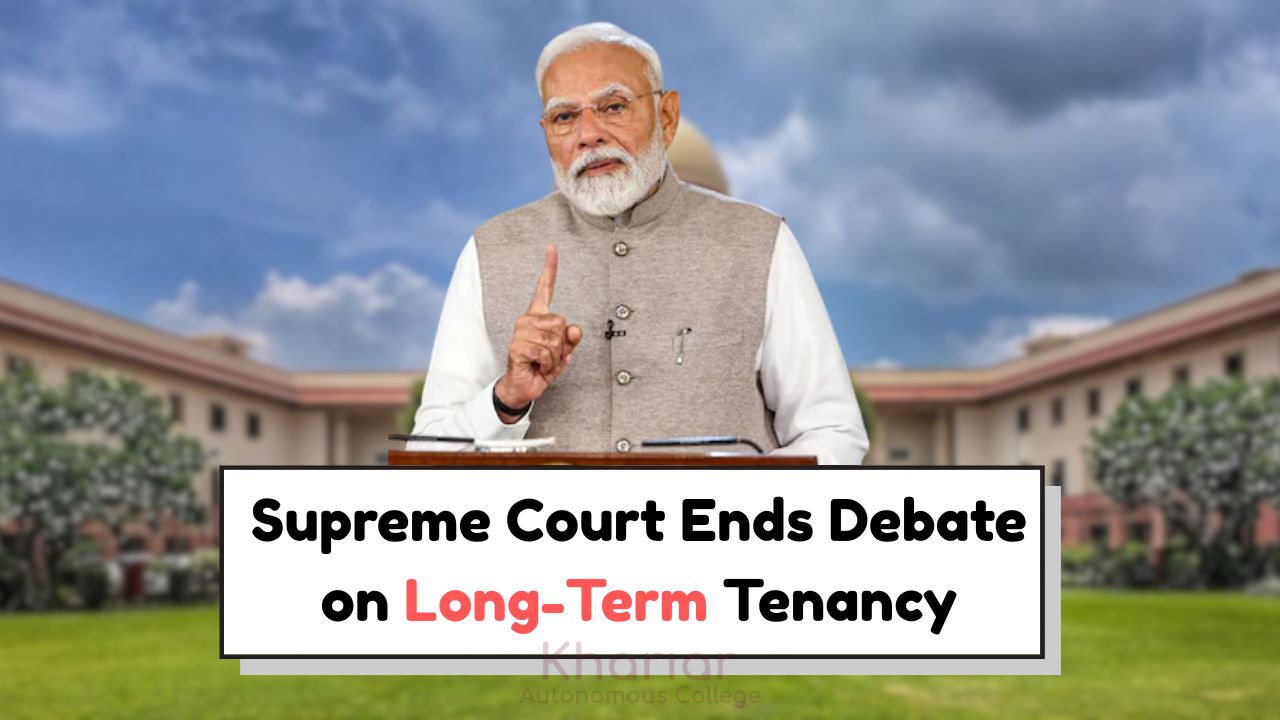
[ad_1]
Tenant Rights in India: The recent Supreme Court verdict has shed light on the crucial aspects of tenant rights for those who have been renting properties for over two decades. This landmark decision aims to balance the interests of tenants and landlords, ensuring a fair and equitable rental ecosystem in India. Understanding these rights is essential for tenants to protect themselves from unjust eviction and for landlords to maintain their properties effectively.
Understanding Tenant Rights Under the New SC Verdict
The Supreme Court’s decision has brought clarity to the rights of tenants, especially those who have been staying in rented accommodations for more than 20 years. This verdict emphasizes the importance of tenant security and stability, recognizing the need for a legal framework that supports long-term tenants. The ruling outlines specific rights, including protection against arbitrary rent increases and unjustified eviction notices. This move is a significant step towards ensuring tenant welfare and promoting harmonious tenant-landlord relationships across India.
Key Takeaways from the SC Verdict
- Tenants have increased protection against sudden eviction.
- Rent control measures are reinforced to prevent arbitrary hikes.
- Legal obligations of landlords are clearly defined.
Implications for Long-Term Tenants
For tenants who have been residing in a property for over 20 years, the SC verdict offers a renewed sense of security. This ruling acknowledges the tenant’s contribution to the community and the local economy, providing a stable living environment. It discourages landlords from exploiting tenants with excessive rent demands or unfounded eviction threats. Long-term tenants can now feel more confident in asserting their rights, knowing that the law supports their continuous residence and provides a legal recourse in case of disputes.
- Enhanced tenant security against eviction.
- Better clarity on rent negotiation terms.
Comparative Analysis of Tenant Rights
| Aspect | Before Verdict |
|---|---|
| Eviction Notice | 30 days |
| Rent Hike | Frequent and arbitrary |
| Tenant Security | Limited |
| Legal Recourse | Complex |
| Landlord Obligations | Minimal |
| Community Impact | Overlooked |
| Dispute Resolution | Lengthy |
Key Provisions of the SC Verdict
The Supreme Court ruling has introduced several key provisions that redefine the tenant-landlord relationship. It mandates landlords to issue eviction notices only under justified circumstances and with sufficient notice period. Additionally, any rent increase must be reasonable and comply with current market standards. The verdict also stresses on the necessity for landlords to maintain the property in a habitable condition, ensuring that tenants enjoy a safe and secure living space. These provisions are designed to protect tenants from exploitation while encouraging responsible property management by landlords.
Legal Obligations for Landlords
- Eviction Process: Must follow legal protocols.
- Rent Control: Increases must be justified.
- Property Maintenance: Essential repairs must be carried out promptly.
- Tenant Privacy: Entry without notice is prohibited.
- Dispute Resolution: Encouraged through legal channels.
Impact on Rental Market Dynamics
The SC verdict is expected to have a profound impact on the rental market dynamics in India. By reinforcing tenant rights, the decision aims to create a more balanced and fair rental market. Landlords may need to adjust their practices to align with the new legal requirements, potentially leading to more transparency and fairness in rental agreements. This change is likely to attract more tenants to long-term rentals, fostering a stable and secure housing environment. Furthermore, the verdict encourages landlords to adopt ethical practices, enhancing trust and cooperation in the rental market.
Landlord Responsibilities
- Adopt fair rent practices.
- Ensure property safety and maintenance.
- Respect tenant privacy and rights.
- Provide clear and legal eviction notices.
- Encourage open communication with tenants.
- Resolve disputes amicably.
- Comply with legal obligations.
Challenges and Opportunities
The implementation of the Supreme Court’s verdict presents both challenges and opportunities for tenants and landlords. While tenants gain a stronger legal footing, landlords face the challenge of adapting to the new regulations. However, this change also presents an opportunity for landlords to build positive relationships with tenants, fostering a cooperative and respectful rental environment. Tenants, on the other hand, can enjoy increased stability and peace of mind, knowing their rights are protected. Both parties can benefit from a clear legal framework that encourages fair and transparent dealings in the rental market.
Long-Term Tenant Benefits
| Benefit | Description |
|---|---|
| Security | Protection against unjust eviction. |
| Affordability | Controlled rent increases. |
| Stability | Long-term residence assurance. |
| Legal Support | Access to a clear legal framework. |
| Community Ties | Contribution to local economy. |
| Property Standards | Maintained living conditions. |
| Dispute Resolution | Streamlined process. |
Future Outlook for Tenants and Landlords
Tenant Empowerment:
The Supreme Court’s ruling is likely to empower tenants, providing them with the confidence to assert their rights and demand fair treatment. This empowerment can lead to more engaged and informed tenants, who actively participate in the rental market, contributing to a healthier housing ecosystem.
Landlord Adaptation:
Landlords must adapt to the new legal landscape, ensuring compliance with the enhanced tenant rights. This adaptation could result in more professional and ethical property management practices, ultimately benefiting both parties in the rental agreement.
Rental Market Evolution:
The Indian rental market is poised for evolution, with the SC verdict serving as a catalyst for change. As tenant rights are strengthened, the market may witness increased transparency and fairness, attracting a diverse range of tenants and encouraging long-term tenancy agreements.
Community Impact:
Strengthened tenant rights can lead to more stable communities, as long-term tenants contribute to local economy and social fabric. This stability can enhance community development, fostering a sense of belonging and cooperation among residents.
Legal Clarity:
The Supreme Court’s decision provides much-needed legal clarity, simplifying the complex dynamics of tenant-landlord interactions. This clarity can reduce disputes and encourage amicable resolutions, promoting a harmonious rental environment.
[ad_2]
Source link



Leave a Reply